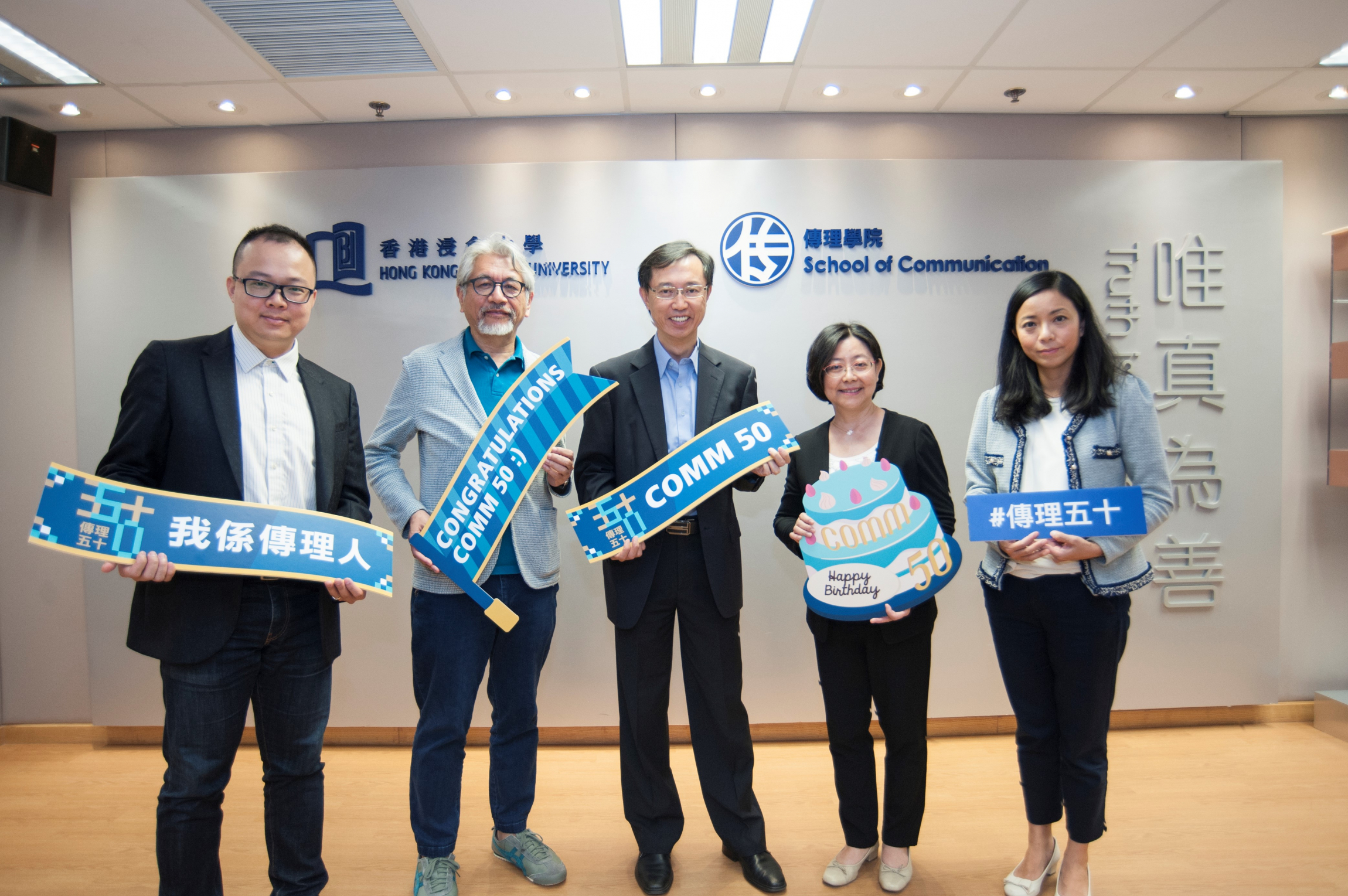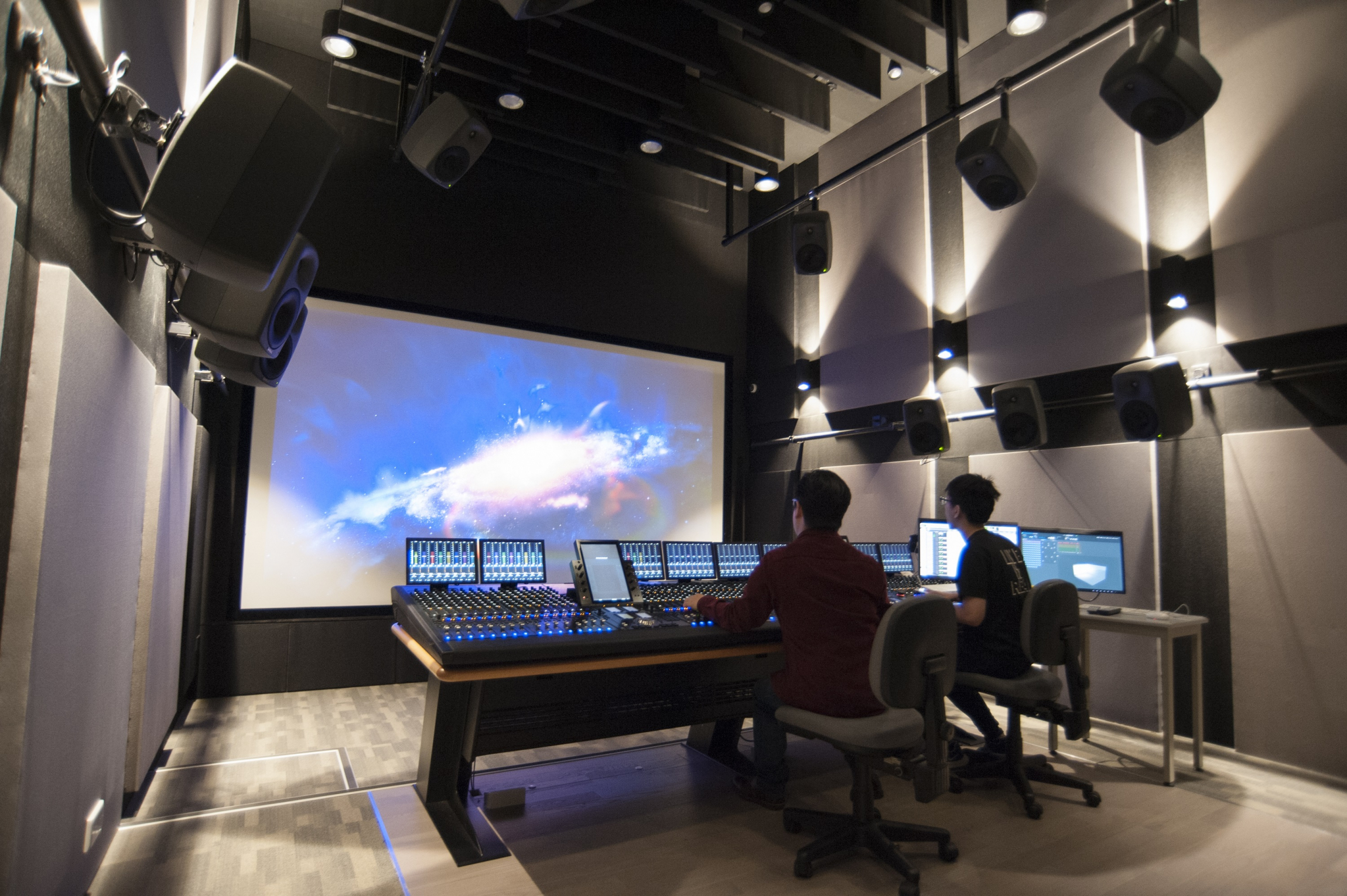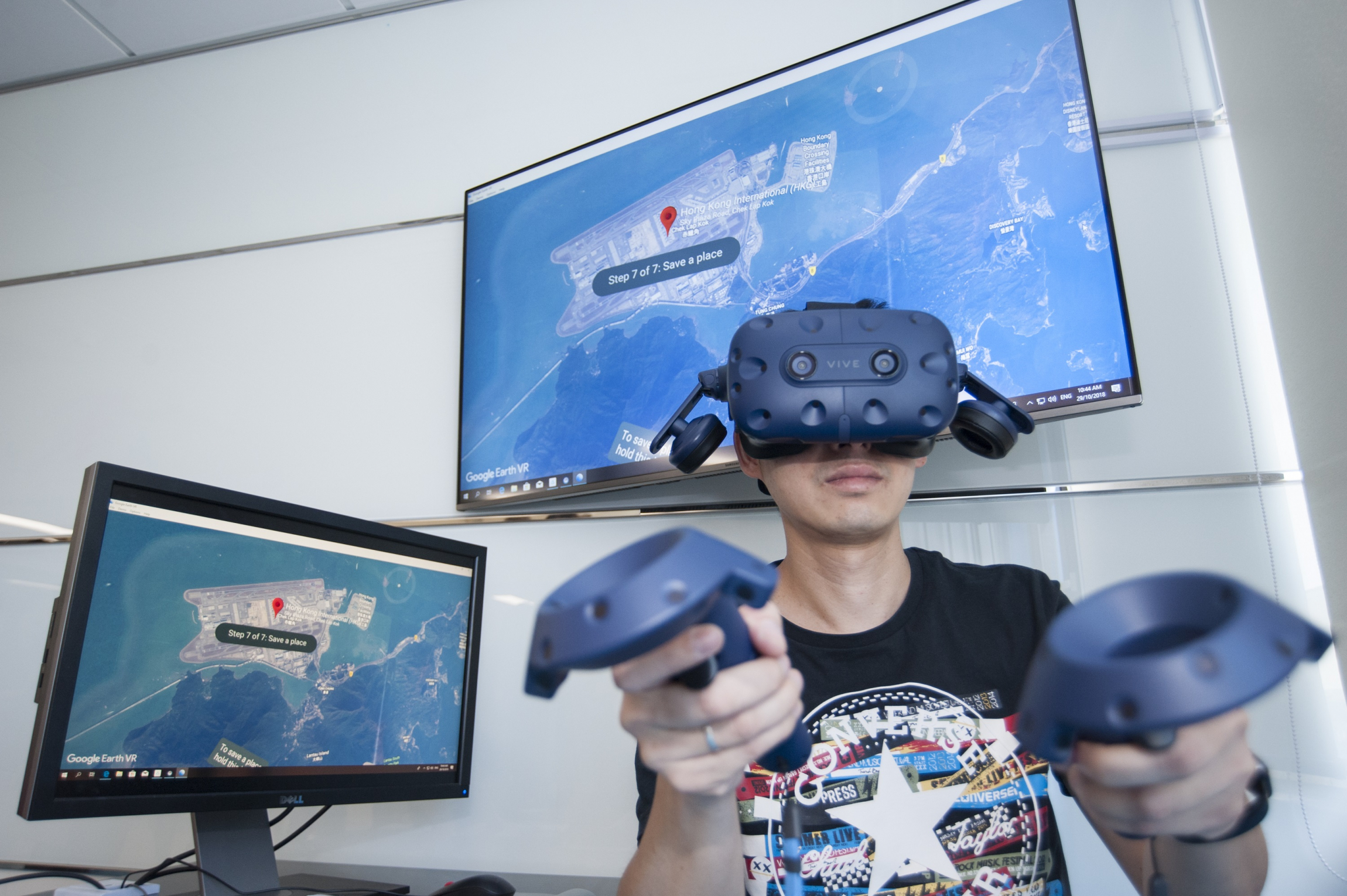Press Release
HKBU School of Communication launches Asia's first Dolby Atmos sound studio, AI & VR labs to celebrate 50th anniversary
Monday, 29 Oct 2018
The HKBU School of Communication has launched new state-of-the-art teaching and research facilities as part of its 50th anniversary celebrations.
The facilities include a Dolby Atmos® Sound Studio, which is the first studio of its kind in Asia, as well as an Artificial Intelligence Media Research Laboratory and Virtual Reality Station. This year, the School has also launched a new concentration in Data and Media Communication. Through the new initiatives, the School aims to create an innovative and creative environment for nurturing young talents.
Professor Huang Yu, Dean of the School, said that the comprehensive and sophisticated teaching and research facilities will help teachers and students pursue breakthroughs, enabling them to strive for excellence in areas of teaching and learning, research and social connection. Upholding the spirit of “Truth is Virtue”, the School hopes to nurture the future leaders in communication with a combination of professional knowledge, skill, integrity and global vision.
Professor Huang added that the School keeps a finger on the pulse of society, and always equips students with the latest media technologies. This includes cutting-edge Artificial Intelligence and Virtual Reality technologies, which enables students to contribute to the industry, as well as helping to prepare them for the future.
The details of new teaching and research facilities are as follows:
Dolby Atmos® Sound Studio
- The School has invested HK$6 million into the new Dolby Atmos® Sound Studio for its Academy of Film. The first of its kind in the Asian tertiary education sector, the studio will soon receive a number of Dolby Atmos® international accreditations.
- Featuring state-of-the-art Dolby Atmos® Sound technology, the new studio brings the School into line with the latest technological developments in cinema. This will help students to learn about the impact of sound design, while also further enhancing the quality of their creations. The technology can make a scene more realistic, enhancing its storytelling impact and bringing work into line with established commercial cinema standards.
Artificial Intelligence Media Research Laboratory
- The departments of Journalism and Communication Studies are using the laboratory to develop and apply related technologies. This includes the use of Artificial Intelligence (AI) language technology in news production and editing. Such tools can also be used to analyse audience feedback.
- The Laboratory is exploring the possibility of headline and content generation, as well as developing language programming tools and platforms for investigative reports and data journalism.
- The Laboratory is also developing language processing and identification programmes to analyse social media and network connection data. These tools can be used to further explore audience participation in combination with traditional social scientific methods.
Virtual Reality Workroom
- The Department of Journalism has been applying Virtual Reality (VR), an interactive computer-generated and 3D simulated environment, to news production and content. VR is especially useful for large-scale constructions and demonstrations as it offers a vivid experience for the audience that is similar to what they can experience in the real world.
- Besides VR, the Department is also investigating the application of sound, 360-degree video and Google Tilt Brush technology in journalism. These technologies can be used to reconstruct news issues and help readers easily understand news content from different perspectives.
To keep up with the rapidly advancing world of media technology, the Department of Journalism and the Department of Computer Science jointly offer the Data and Media Communication concentration. The interdisciplinary programme aims to equip students with the skills to use and analyse data collected from various sources, and then incorporate such data into news production. The School also plans to offer a master’s degree in AI and Digital Media.
In addition, the School will soon release a report on the development and landscape of digital media in Hong Kong to explore the issues from different perspectives.
To mark its 50th anniversary, the School has organised a variety of celebratory events throughout the year. This includes the Global University Film Awards, international academic conferences, and the Distinguished Communication Alumni Awards. It also plans to publish Comm Buddies, a 50th anniversary commemorative book. For more details, please refer to: http://www.comm.hkbu.edu.hk/comd-www/english/50th/events.htm.
~End~
Media enquiries: Mavis Wong of the Communication & Public Relations Office at 3411 7964 / hkbunews@hkbu.edu.hk, or Patricia Chan of the School of Communication ( 3411 7875 / patricia@hkbu.edu.hk)


